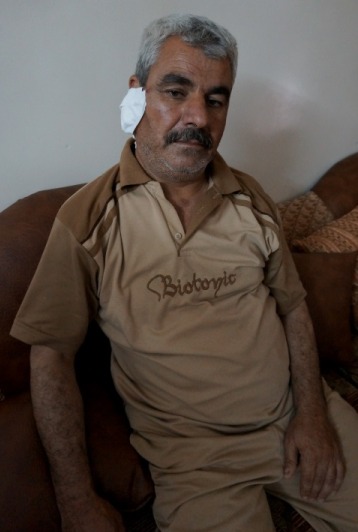Tag: Assault
-
Israeli forces invade Awarta, ransacking teacher’s home
28th June 2014 | International Solidarity Movement, Nablus Team | Awarta, Occupied Palestine During the early morning hours of June 26, the Israeli army invaded the village of Awarta, 8 km south of Nablus in the northern part of the West Bank. According to witnesses, between 150 and 200 soldiers entered Awarta just after midnight and raided approximately…
-

Asira Attacked 4 Nights in a Row
7th May 2014 | International Women’s Peace Service | Asira al-Qibliya, Occupied Palestine Israeli army raided the village of Asira al-Qibliya (south of Nablus) at 1 am on 5 May, arresting a 21-year-old, brutally assaulting his uncle, and terrorising the family’s children with attack dogs. Dozens of Israeli soldiers invaded Asira by foot, sneaking in from the backside of…
-
Two men seriously beaten while attempting to build a house in Tel Rumeida
10th June 2013 | International Solidarity Movement, Khalil Team | Hebron, Occupied Palestine Yesterday in Khalil, a number of Palestinians were transporting building material to a house in Tel Rumeida. By doing so, they were challenging the army by transporting the material using a tractor on the only remaining road to the house, one which…
